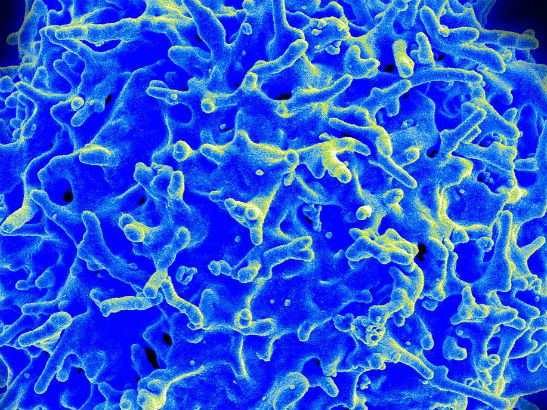.tmb-0874x492.jpg?sfvrsn=eb3c5669_1)
Professor Jacques Miller (right) shares his award with Professor Max Cooper (centre).
Professor Jacques Miller has been awarded the prestigious Japan Prize for his discovery of the role of the thymus and the two types of white blood cell involved in the adaptive immune system – a discovery that laid the groundwork for much of the field of modern immunology and underpinned new immune-based therapies.
His characterisation of lymphocytes into T and B cells was underpinned by his work at the ICR, where he discovered the essential function of the thymus during his PhD research. The Japan Prize is one of the most prestigious international prizes in science and technology after the Nobel Prize.
Professor Miller will share the prize with Professor Max Cooper, an American immunologist who independently discovered the functions of the two types of lymphocytes. They will each receive their ¥50 million (£320,000) prizes at an award ceremony on 18 April 2018 in Tokyo.
Fundamental discoveries
Professor Miller’s interest in cells of the immune system began during his time at the ICR while researching lymphocytic leukaemia – which affects circulating lymphocytes – for his PhD. The disease begins in the thymus, an organ in the chest that was at the time thought to be a leftover from our evolutionary history.
Yet when Professor Miller studied young mice in which the thymus was removed on the first day of life, he found that they became sick very easily, and died with very few lymphocytes – white blood cells that help the immune system respond to new threats.
Miller also found that early removal of the thymus reduced the immunological rejection of skin grafted from a different strain of mice. Thus in this seminal early work Miller had demonstrated that the thymus is important for immunological function and lymphocyte numbers.
After his PhD, he moved to the National Institutes of Health in the USA, continuing his work and demonstrating that these lymphocytes could be divided into distinct lineages, now known as T and B cells.
He then took up a post at the Walter and Eliza Hall Institute of Medical Research in Melbourne, Australia. Professor Miller also showed that the thymus is the organ where T cells mature, making it vital to a working immune system.
T cells are one of the body’s lines of defence against infection and cancer, as they can recognise the difference between healthy cells and infected or cancerous cells. They are also vital to immunotherapies, which help to expose cancer cells to the immune system.
Professor Jaques Miller discovered the essential role of the thymus in our immune systems while working as a PhD student at the ICR. It was a discovery that helped lay the foundation for all of modern immunology.
Pioneering achievements
The Japan Prize is awarded annually to people from across the world who have made significant contributions to the advancement of science and technology.
The Japan Prize Foundation, which awards the prize, said of Professors Miller and Cooper:
“Their pioneering achievements laid the foundation for the next half century of developments in immunology from basic concepts to applied research.
“The development of new therapeutic drugs for cancers and immune disorders, which has been attracting much attention in recent years, would not have been possible without their discoveries.”
The ICR’s Chief Executive, Professor Paul Workman, said:
“We were really thrilled to see Professor Miller given this prestigious award for his pioneering work – which included, while at the ICR, uncovering the fundamental role of the thymus in immunity.
“We are proud to list this discovery as one of our major historical achievements, especially as it provided the basis for the new T cell checkpoint inhibitor drugs that are having such an impact on the lives of cancer patients.”
Read more about the ICR’s historical achievements
